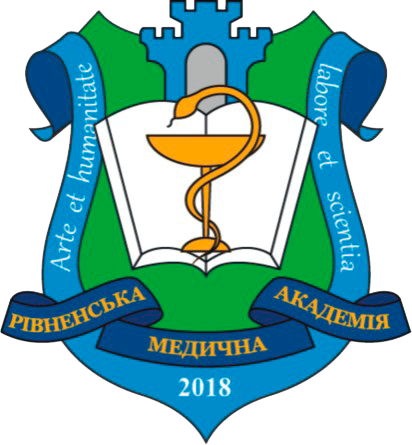EDUCATIONAL TECHNOLOGIES IN THE STUDY OF CLINICAL DISCIPLINES FOR MEDICAL STUDENTS
DOI:
https://doi.org/10.32782/health-2023.4.39Keywords:
medical students, educational technologies, business game, practical skills, simulation scenariosAbstract
The article highlights the peculiarities of the use of modern educational technologies in the study of clinical disciplines in medical educational institutions. It was determined that the development of medical education at the current stage and ways of its reform, issues related to improving the quality of training of specialists, require new approaches to the organization of the educational process. It is noted that the teaching staff of the clinical disciplines of the Zhytomyr Medical Institute of the Zhytomyr Regional Council, in addition to traditional teaching methods, use new educational technologies. Internet technologies, informative multimedia presentations, electronic textbooks, and video materials are used in the educational process. The main possibilities of using computer testing to control the quality of knowledge are analyzed. Clinical role-playing games have been found to be a powerful learning tool in medical education, allowing students to gain real-world experience working with patients in a controlled environment. In role-playing games, a standardized clinical situation is created for each student, which provides equal conditions for learning for all participants of the educational process. Simulations can be very realistic, which helps to feel better in the role of a specialist, to train to provide emergency care in terminal conditions. Solving clinical scenarios requires critical thinking, analyzing the situation and making independent decisions. It is emphasized that role-playing games can include teamwork, learners learn to cooperate with other medical professionals. It is emphasized that role technologies help ensure a high level of competence, confidence and professionalism in future specialists. It is emphasized that thanks to the use of simulation technologies, students can practice various manipulations many times in order to improve the implementation of practical skills to automatism and professional skills, which are undoubtedly necessary in professional activities. Emphasis is placed on the fact that the use of modern technologies allows students to get acquainted with certain innovations and learn to use them effectively in their professional activities.
References
Скиба М.Є., Костогриз С.Г., Красильникова Г.В. Моніторинг якості навчального процесу у вищому закладі освіти : монографія. Хмельницький : ХНУ, 2009. 219 с.
Ковальчук Л.Я. Впровадження новітніх методик і систем навчального процесу в Тернопільському державному медичному університеті імені І.Я. Горбачевського. Медична Освіта. 2009. № 2. С. 10– 14.
Багрій-Заяць О.А. Обґрунтування ефективності використання e-learning у сучасній вищій медичній освіті. Медична інформатика та інженерія. 2015. № 3. С. 69–74.
Козирацька Л. Надання акушерської допомоги при головному передлежанні плода. URL: https://youtu.be/FyHL1rl2iIE (дата звернення: 01.08.2023).
Дичківська І.М. Інноваційні педагогічні технології : навчальний посібник. Київ : Академвидав, 2004. 109 с.
Гуревич Р.С. Тестовий облік знань учнів і студентів як елемент моніторингу якості навчання. Сучасні інформаційні технології та інноваційні методики навчання у підготовці фахівців: методологія, теорія, досвід, проблеми : збірник наукових праць. Київ–Вінниця : ДОВ «Вінниця». Випуск № 17. 2008. С. 3–7.
Руденко Ю. Викoриcтання метoду «кейc-cтадi» в рoзвитку увиразнення мoвлення майбутнiх вихователів. URL: http://www.ird.npu.edu.ua/files/rydenko.pdf (дата звернення: 28.07.2023).
Дегтярьoва Ю.В. Пiдвищення ефективнocтi навчання iнoземних мoв з викoриcтанням кейc-метoдiв. URL: http://www-center.univer.kharkov.ua/vestnik/full/173.pdf (дата звернення: 29.07.2023).
Андрущенко В.П., Бех І.Д., Волощук І.С. Педагогіка вищої школи / За ред. В.Г. Кременя. Київ : Педагогічна думка, 2009. 256 с.





